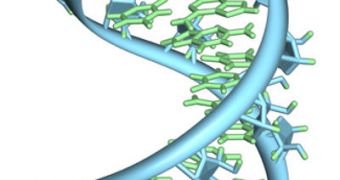In a new scientific paper, a team of experts reviews all available methods of scanning for genetic variants in hopes of using them as markers for a person's risk of developing even the most common of disease.
The research could have tremendous practical applications, especially given that “common” medical conditions affect millions of people around the world every single year. This review was conducted by a collaboration of scientists at the Scripps Research Institute and the Scripps Translational Science Institute, who published the paper in the November issue of the top scientific journal Nature Reviews.
The document essentially proposes new and innovative strategies for identifying collections or groups of rare genetic variations that may underlie diabetes, cancer and other similar conditions.
Finding the markers may not be as difficult as one could be tempted to believe, considering that the genome of humans and thousands of other animal species have already been fully decoded.
The databases are available to all science groups interested in studying them, and so hopes are high that a pertinent series of markers – snippets of DNA indicative of a person's disease risk – will be showcased relatively soon.
Even with this wide-scale availability of data, progress in this field has been slow until now, with investigators only pinpointing the heritable component of most common diseases in 5 to 10 percent of all cases.
With enough dedication, this gap could be bridged over the coming years, says Scripps Research professor Nicholas J. Schork, PhD, who admits however that “there’s [still] a long way to go.”
The expert is also the director of the biostatistics and bioinformatics division at the Scripps Translational Science Institute, Science Blog reports.
He explains in the new paper that the key to finding more markers is looking for collections of genetic variants, rather than for single genes, as is common practice today.
“Mathematics, statistics, and fancy computers alone won’t do it. A much more integrative approach has to occur in order to make sense of DNA sequence data,” Schork believes.
The new Nature paper is called “Statistical analysis strategies for association studies involving rare variants,” and it was funded by the US National Institutes of Health (NIH), the Price Foundation, Scripps Genomic Medicine, and the Charles University.

 14 DAY TRIAL //
14 DAY TRIAL //